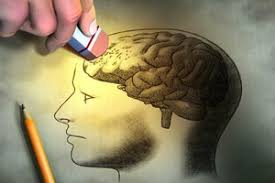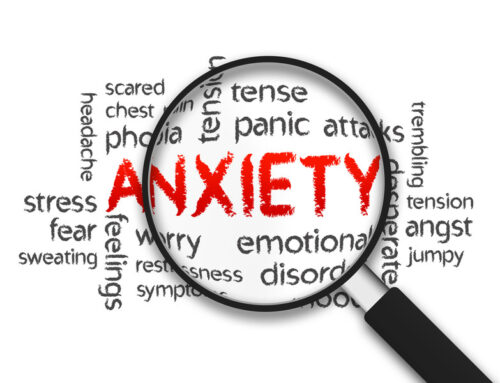How Stressful Memories Affect Anxiety
by Charles Beeson
Stressful memories can affect anxiety in many different ways and can often times be the root cause of many anxiety disorders.
The most obvious example is Post Traumatic Stress. PTSD involves experiencing or witnessing a life threatening event or sexual attack, as well as, a severe reaction to a personal loss.
PTSD is usually diagnosed by symptoms of severe fearful feelings triggered by:
 The Diagnostic Statistical Manual (DSM) used by psychologists, lists 17 symptoms that are divided into 5 types of severity levels. Many of these same symptoms are also shared with the diagnosis of Generalized Anxiety, Social Anxiety and Panic Disorder.
The Diagnostic Statistical Manual (DSM) used by psychologists, lists 17 symptoms that are divided into 5 types of severity levels. Many of these same symptoms are also shared with the diagnosis of Generalized Anxiety, Social Anxiety and Panic Disorder.
These other anxiety disorders are usually considered; not caused by trauma because they don’t have the severity of symptoms and the nature of the root-cause experience was not life threatening. Although, many who suffer with PTSD are often diagnosed with other types of anxiety disorders, as well.
It is the purpose of this article to explore the effects caused by lesser severe, stressful events. These memories would not be considered traumatic, but, life altering nevertheless!
Significant emotional events can often connect a memory to a feeling of fear, sadness, hurt, anger, shame and guilt. These feelings range in intensity from simply remembering how you once felt to the most severe flashback of that significant emotional feeling.
 Serial Stressful Events
Serial Stressful Events
When you have several stressful events that occur within a close time-frame, or experience a string of severe losses, it can often result in the development of anxiety that can affect one life.
An example of this is a woman whose Mother recently died. A month later, she had to put her beloved cat to sleep, and a few days later, lost her job. She soon began experiencing severe nervousness and anxiety attacks.
The symptoms of this anxiety often appear as a lesser form of PTSD. In fact, these sufferers are sometimes diagnosed by mental health practitioners as actually having had a trauma. These symptoms are often moderate to severe and fall within the categories of:
These symptoms are usually diagnosed as Generalized Anxiety Disorder (GAD) if they last 6 months or more.
My Personal Experience with Anxiety Coaching
Over the last 15 years I have worked with hundreds of clients that fit this description.
In about 80% of these cases, the individual states they had a stressful event occur before the onset of their anxiety symptoms. Upon further investigation, they often had many stressful life events over a span of many years. These stressful memories affect anxiety.
What I discovered was that if these stressful memories could be completely DESENSITIZED, the severity of the anxiety symptoms are often reduced by about 50%. These memories, when combined with any genetic factors, are the root cause of many anxiety disorders. Desensitize, in this case, means a complete removal of the emotional charge connected to the memory.
I learned in my experience, that just a partial desensitization of these feelings may NOT achieve this positive outcome. This is often the case when a therapist tries to use techniques, such as EMDR, without training in advanced hypnotherapy or NLP techniques.
Most Common Methods Used to Desensitize Bad Memories

Psychotherapy:
This is a broad spectrum of many different methods. It generally includes forms of Exposure Therapy and Cognitive Behavioral Therapy (CBT). This form of treatment can last from about 12 weeks to beyond a year.
Group Therapy:
Group discussions, led by a therapist, allows for the recall of past events in a calm and collaborative environment. This can allow for a slow desensitization of stressful memories. This approach is used often by the Veterans Administration and many HMOs.
EMDR (Eye Movement Desensitization and Reprocessing):
Very popular method with many counseling therapists where the subject recalls the traumatic event, while watching the moving finger of the practitioner. This eye movement pattern is born from the study of Neurolinguistic Programming,
This technique usually just partially desensitizes the memory, and usually requires many sessions depending upon the severity of the trauma and the skills of the therapist.
Time Line Therapy®, (TLT):
My favorite technique and most valuable tool in my tool-box. In literally 90 minutes, almost all negative emotional charges of fear, sadness, guilt and anger, can be completely desensitized in significant past memories.
Instead of performed as psychotherapy, TLT is conducted in a couching session using a guided imagery process.
I really like the technique for remote online-couching, over a video-chat format, such as Skype. I usually conduct this technique for all of my anxiety clients participating in the InstaCalm Anxiety Treatment Program.
InstaCalm Anxiety Relief System
The InstaCalm program is a 3, 4, or 5 session hypnotherapy treatment for mild, moderate and severe anxiety. This severity level is determined by a self-help, rating test (not a psychological test) that uses proprietary algorithms designed for InstaCalm.
All three programs begin with the TLT technique in the first session. This usually removes the root cause of the anxiety. This session usually takes about 90 minutes.
Free 15 Minute Phone Consultation
I would be happy to discuss your situation during a confidential phone call. I can then, better determine if this approach is right for you and explain more about how Time Line Therapy® can help you get your life back fast!
Click Here to schedule your no obligation, consultation.
Its very possible that in just a single 90 minute session, in my office or online using skype, you can get significant anxiety relief.

*Time Line Therapy® is a registered trademark of Tad James,PhD. and the Time Line Therapy Association





